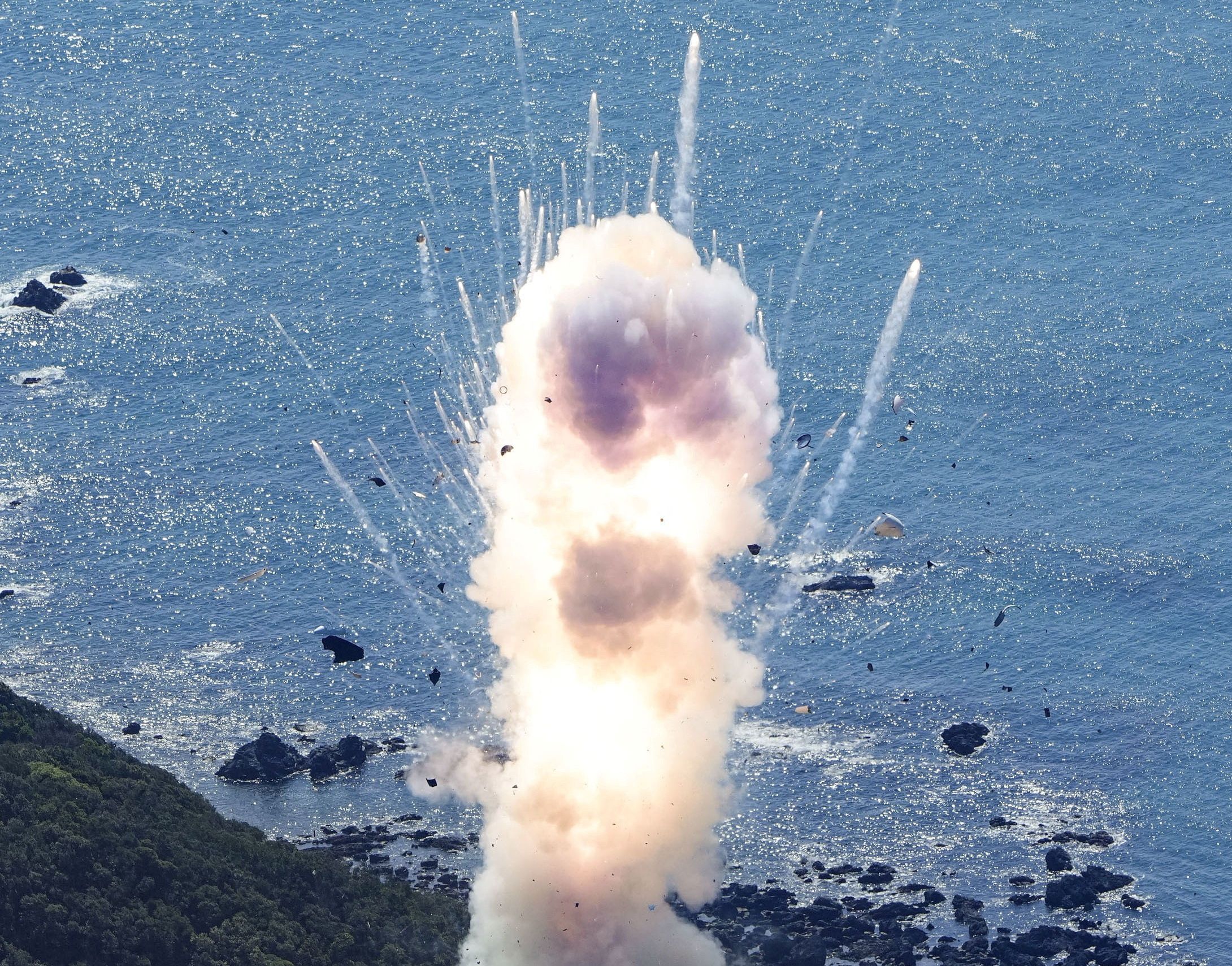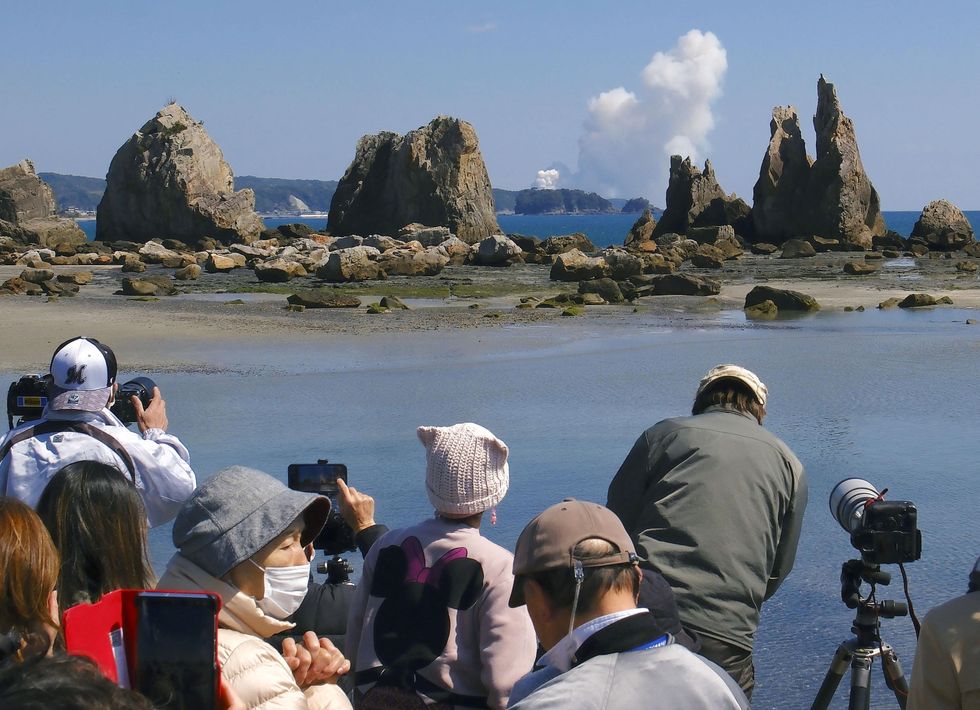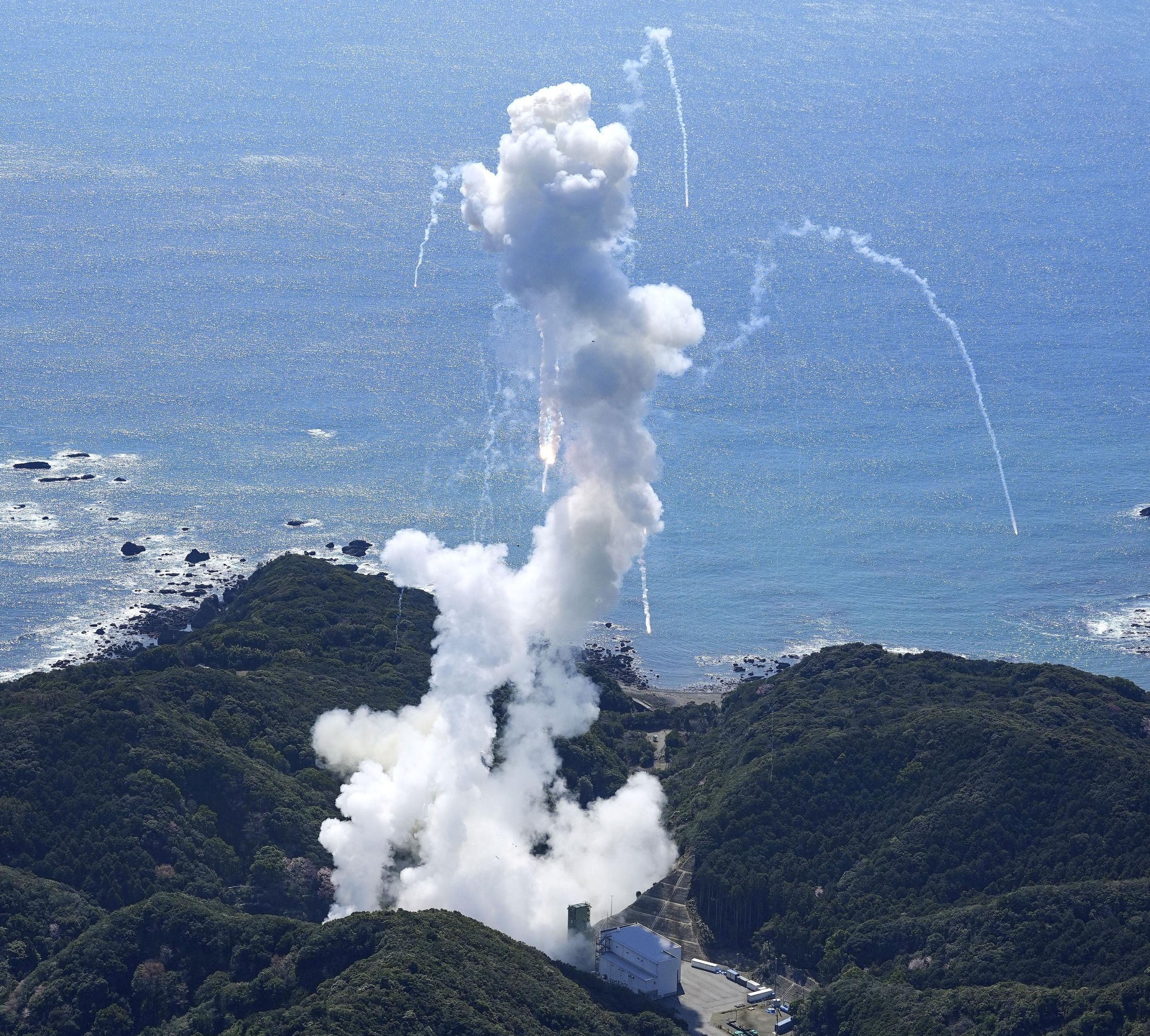The rocket exploded just seconds after launch
Reuters
It was the first attempt by a Japanese company to put a satillite in space
Don't Miss
Most Read
Trending on GB News
A Japanese space rocket exploded just seconds after launch in a setback for the country's space efforts.
Kairos, a small, solid-fuel rocket made by Japan's Space One, exploded just five seconds after lifting off.
The 18-metre (59 ft) rocket left behind a large cloud of smoke, a fire, fragments of the rocket and sprays of firefighting water near the launch pad on the tip of mountainous Kii peninsula in western Japan.
Space One did not specify what triggered self-destruction after the first-stage engine ignited.

The moment of explosion of the Kairos rocket
Reuters
The launch was the first attempt by a Japanese company to put a satellite in orbit.
Space One president Masakazu Toyoda told a press conference: "The rocket terminated the flight after judging that the achievement of its mission would be difficult...We don't use the world 'failure', because each trial brings us...new data and experience for another challenge."
Governor of Wakayama prefecture Shuhei Kishimoto told reporters that there were no injuries near the launch pad, and the fire has been extinguished.
Kairos carried an experimental government satellite that can temporarily replace intelligence satellites in orbit if they fall offline. Space One had planned the launch for Saturday but postponed it after a ship entered the nearby restricted sea area.
LATEST NEWS FROM AROUND THE WORLD

Smoke rises from Space One's launching pad on the tip of Kii peninsula
Reuters
The company said that the launch is highly automated, requiring only about a dozen ground staff, and that the rocket self-destructs when it detects errors in its flight path, speed or control system that could cause a crash that endangers people on the ground.
The failed launch comes as the Japanese government and investors ramp up support for the sector amid a national security buildup and skyrocketing demand for commercial satellites.
Although Japan is a relatively small player in the space race, the nation's rocket developers are scrambling to build cheaper vehicles to capture booming demand for satellite launches from its government and from global clients.
Tokyo-based Space One was established in 2018 by a consortium of Japanese companies and wants to offer "space courier services" to domestic and international clients, aiming to launch 20 rockets a year by the late 2020s.

There were no injuries in the explosion
Reuters
Space One did not disclose Kairos' launch costs, but company executive Kozo Abe said it is "competitive enough" against American rival Rocket Lab RKLB.O.
Last month, state-funded Japan Aerospace Exploration Agency (JAXA) successfully launched its new cost-efficient flagship rocket, the H3. JAXA completed a historic "pinpoint" moon landing this year, and the H3 is scheduled to carry about 20 satellites and probes to the space by 2030.
Toyoda said. "Rocket Lab, too, did not achieve its mission at the inaugural (Electron) flight, but it went on to launch three rockets in its second year. We can't stop here – we need to compete with this company."








